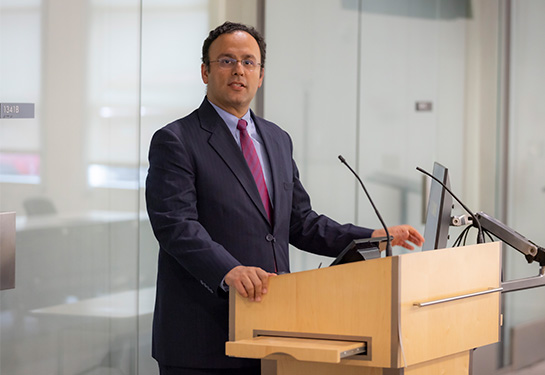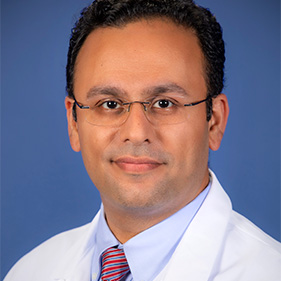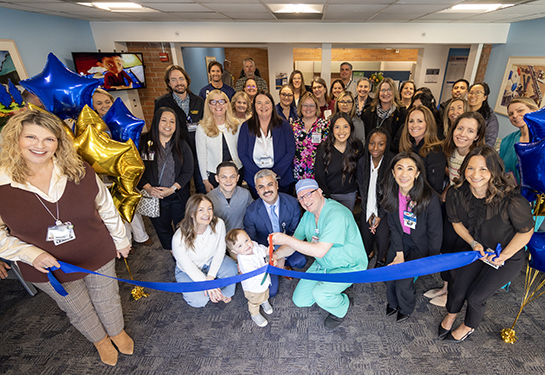New medical school course aims to prepare physicians for the business of health care
Medical schools train future physicians on the complexities of medicine and caring for patients, but after graduating, they often enter residency with little understanding of how the health industry operates.
The UC Davis School of Medicine is committed to changing that.
The School of Medicine has implemented a business of medicine course to help third- and fourth-year medical students better understand the health care industry holistically.
It is one of the few medical schools in the nation to offer a business-focused elective course.
Created and taught by Gaurav Gulati, senior medical director of ambulatory specialties at UC Davis Health, the business of medicine course includes discussions on how health care systems function and introduces prominent issues that physicians often encounter but are not exposed to in medical training.
The course began in August as part of the school’s modernized curriculum known as I-EXPLORE.
“Within our I-EXPLORE curriculum we strive to provide diverse opportunities for in-depth exploration of areas of interest while helping students to select and prepare for their residency,” said Kristin Olson, associate dean for curriculum with the School of Medicine. “The instruction of the business of medicine is another critical tool we can provide medical students to add to their professional toolbox and prepare them to be the health-care leaders of tomorrow.”
The business of medicine course covers a wide range of topics, including:
- What makes health care a unique business
- Why not-for-profit community-oriented clinics and hospitals still need to be profitable to fulfill their mission
- The evolution, characteristics and properties of the U.S. health care system
- Today’s insurance industry landscape
- Discussions on organizational structure, marketing, finance and accounting
“My hope is providing these young physicians this introductory business training will help them better understand the operations of health care and better prepare them to be future health system leaders,” Gulati said.
Patient benefits
Patient care is at the center of medicine and the main reason many physicians chose to go into the field. But, as hospitals increasingly focus on profitability, prescription drug costs continue to skyrocket and patients see higher bills for medical insurance, business is an increasing part of a physician’s daily work.
A good understanding of the business side of medicine can help physicians better understand the challenges their patients face and improve overall patient experience.
“Having a foundation of knowledge — on topics like how insurance systems work, what is the basis for complex billing and coding systems, and how health care organizations are set up and function — allows physicians to help their patients navigate the health system,” said Gulati. “This improves patient engagement in their own care and builds patient trust with their provider.”
As delivery of medical care becomes more complex, it is essential for physicians to develop a good framework for understanding the ever-changing drivers of the business of health care.” —Gaurav Gulati
Need for business training of medical professionals
Learning the business of medicine also expands career opportunities for doctors beyond medical practice, providing high-level management skills and strategies essential for all professionals. In addition, business-savvy physicians can more easily navigate an increasingly complex health care landscape, while also becoming highly effective leaders.
In fact, a recent study found that hospitals employing physicians as CEOs outperformed those with non-medical leadership.
“As delivery of medical care becomes more complex, it is essential for physicians to develop a good framework for understanding the ever-changing drivers of the business of health care,” added Gulati. “By offering this course we are better training our future physician leaders who will oversee complex health organizations and have a direct influence on patient care.”






